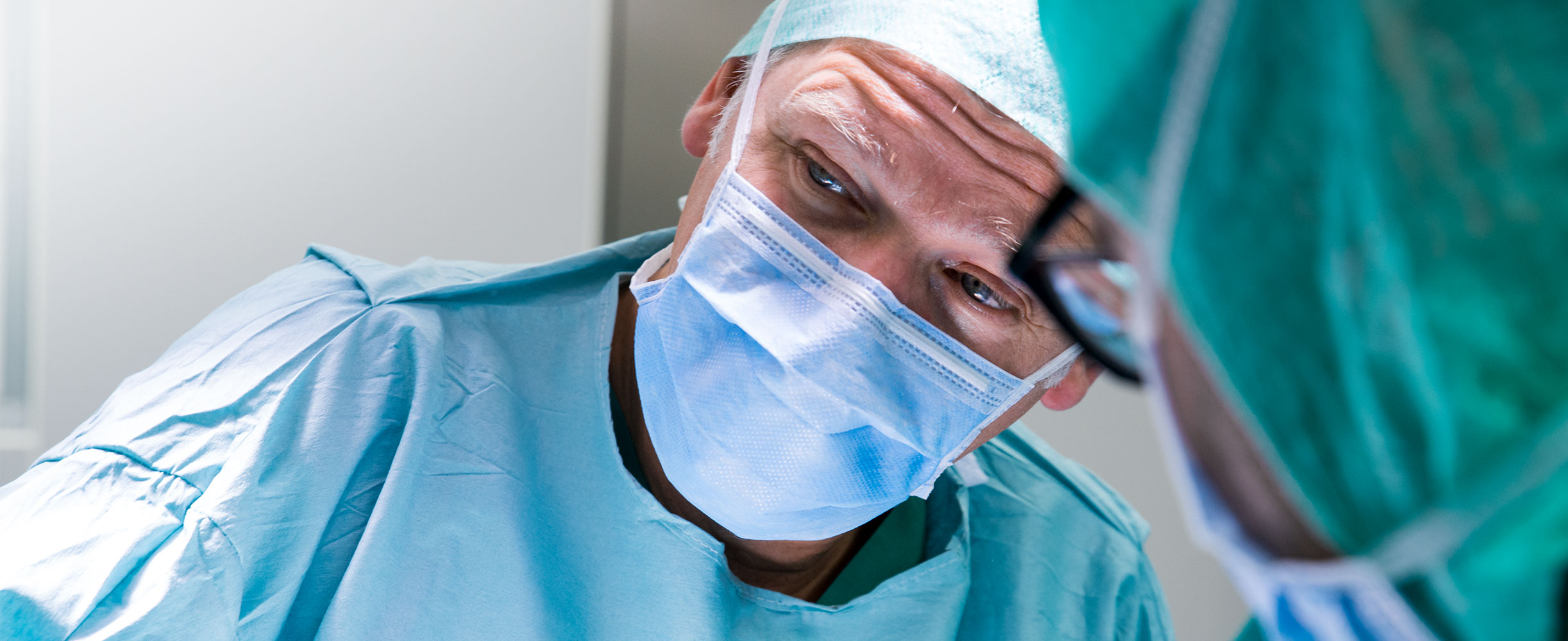- Bewertung wird geladen...
Whereas until just a few years ago, the quality and success of hernia surgery was measured purely on the basis of the rate of recurrences, chronic groin pain as a consequence of hernia surgery has evolved over recent years to become a further, important parameter.
Chronic pain is the term used to describe pain persisting for 6 months and more. Current data from the German Hernia Registry (Herniamed) confirms that this is by no means uncommon. An analysis of over 40,000 data records has confirmed that 5.8% of patients with inguinal hernias still have pain at rest 12 months after their surgery.
During physical exertion, the number of patients experiencing pain rises to 11.7%. In total, 3.5% of patients suffer pain requiring treatment 12 months after their operation. It must also be remembered that the number of unreported cases means that these figures may be even higher.
The treatment options for chronic pain are limited and often tedious. To begin with, conservative, non-invasive treatment options should be explored. These include taking painkillers (analgesia), manual and physiotherapy, and infiltration treatments. It is important to differentiate the cause of the pain in order to offer targeted treatment.
A neurological examination can help to distinguish between neuropathic and nociceptive pain. Neuropathic pain occurs as a result of direct nerve damage / irritation and leads to impaired pain processing. For affected patients, neuropathic pain in the groin may be experienced as localised tingling, stabbing and burning.
Patients report feelings of ants crawling over their skin, and sometimes shooting sensations of pain, like an electric shock, radiating through their groin. Nociceptive pain is caused by mechanical, chemical or electrical stimulation of the pain receptors. In inguinal hernia surgery especially, this can be caused by surgical trauma and the implantation of extensive synthetic meshes. Not uncommonly, however, a combination of neuropathic and nocireceptive pain needs to be considered.
Regardless of the type of pain involved, treatment is difficult and is often unsuccessful. Typically, the treatment of chronic pain begins with medication-based therapy. This often alleviates the symptoms, however it does not address the cause of the pain.
A patient with chronic pain has just one wish: He wants to be pain-free again, ideally undo the operation that caused the pain, and have the probable cause resolved.
Due to the increased risks associated with further procedures, surgical revision has previously been regarded as the "last resort". Literature describes in some cases highly complex surgical procedures, in which nerves are separated proximally, well away from the groin, such as in a procedure called a retroperitoneal triple neurectomy.
Many years of experience with procedures carried out under local anaesthetic mean that we are able to explore the source of the pain intra-operatively, i.e. during the surgical procedure itself. This precise, intra-operative nerve response allows accurate localisation of the source of the pain. The affected sensitive nerves can then be selectively released and where necessary separated. Even during the procedure, the patient will then experience a spontaneous improvement in their pain symptoms.




